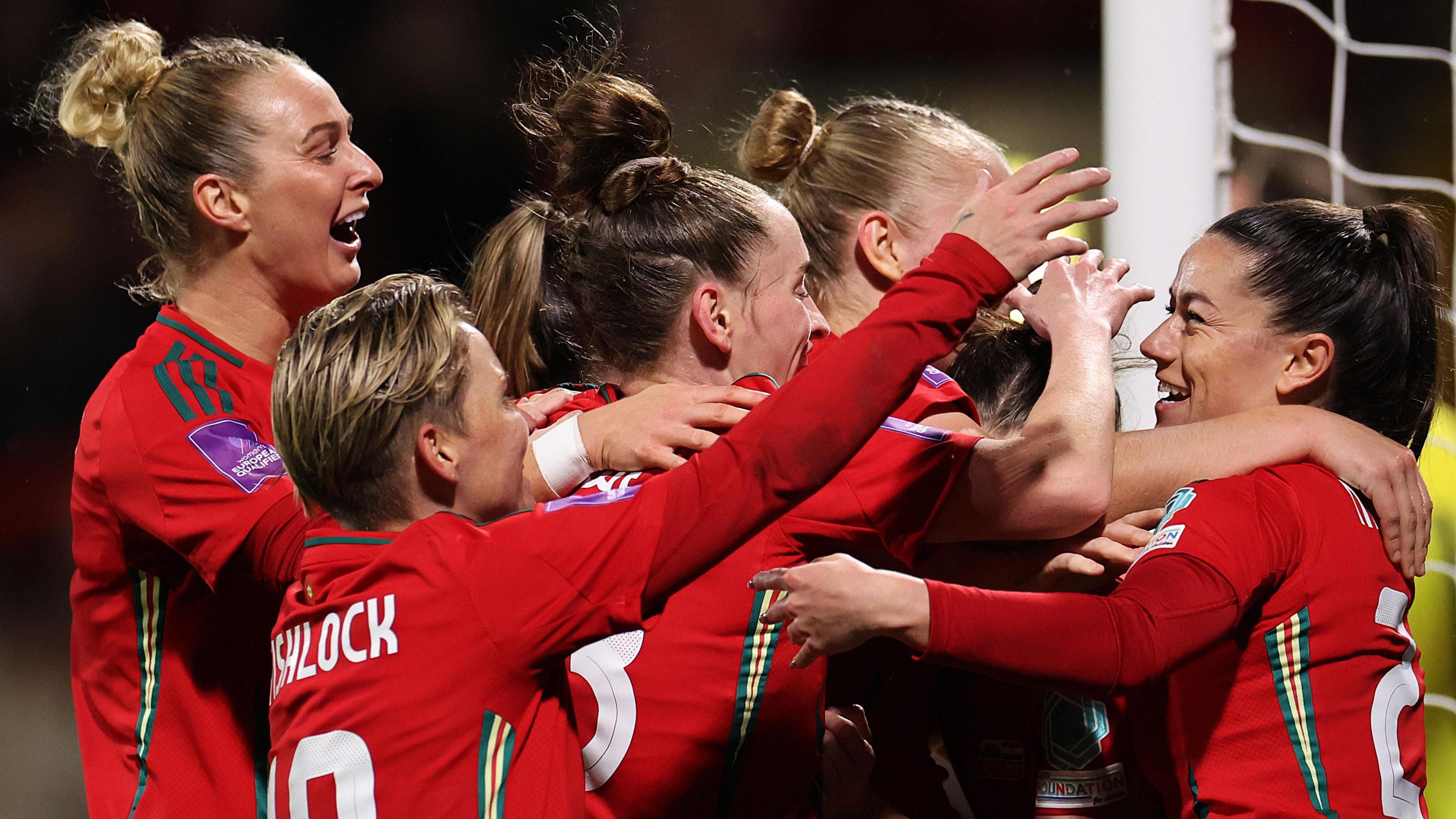Backing women’s sport can challenge inequality in Wales

Wales' World Cup play-off final against Switzerland had over 500,000 page views for the live page and 200,000 for the match report
- Published
BBC Wales Director Rhuanedd Richards says backing women’s sport can help to challenge social inequality in Wales.
Richards says the next 12 months can provide the platform to transform support for female sport.
Richards says most Welsh sporting stars are men because of “the deep-rooted patriarchy".
Speaking at an event for women leaders in Cardiff on Thursday, Richards says a consistent approach to televising women’s sport is essential if we are to see it grow and flourish in Wales.
“BBC Cymru Wales has committed to broadcasting our women’s national football and rugby games on the BBC,” she said.
“During the football World Cup qualifiers, audiences on TV increased from 80,000 to 400,000. The crowds at the games increased from a few hundred to 15,000.
“Participation in women’s football in Wales doubled. Investment doubled. The fanbase doubled.
“We are a nation that seeks heroes – yes, for personal inspiration – but also because Wales as a nation is constantly lacking in confidence.”
Richards says that women’s successes are less visible than male ones and that contributes to outdated gender notions.
“The deep-rooted patriarchy here means that most Welsh heroes have been men,” she added. “The expectation has been that Welsh women are caretakers and home makers – Mams.
"Women’s successes have been hidden and there’s no doubt that this has contributed to the inequalities we see in public life, politics, business and sport.
“We need to keep building our audience numbers for live women’s football and rugby coverage – we’re not yet where I think we can potentially be.”
Richards says it is vital that women’s sport is championed in Wales as part of wider social change.
“We’re significantly further ahead than we were – but my generation of leaders in the media must prioritise bringing to an end the systemic discrimination against the coverage of women’s sport,” she added.
“My challenge to us all in Wales, if you’re not yet super fans, use the wider social imperative to get behind these champions.
“By giving our women athletes and teams, individual and collective visibility, by valuing their achievements, creating heroes and by advocating for fairness, we are creating a path for broader social change.
“One which reverberates beyond the field or the boxing ring, and a catalyst to challenging the patriarchal norms which have been so embedded in so many aspects of Welsh society.”